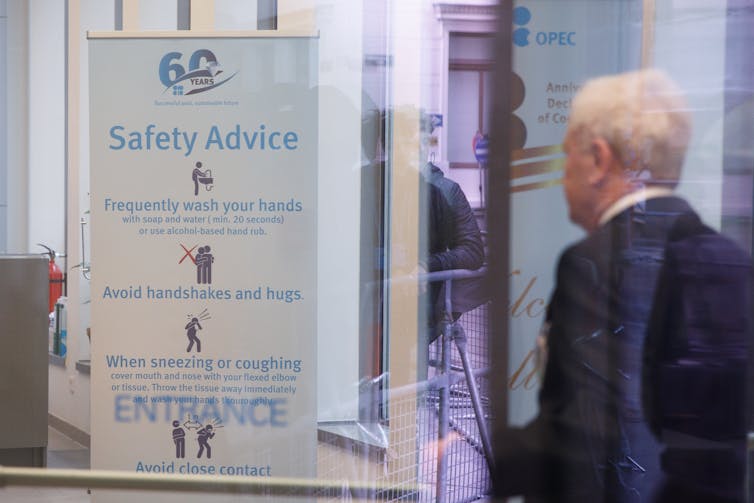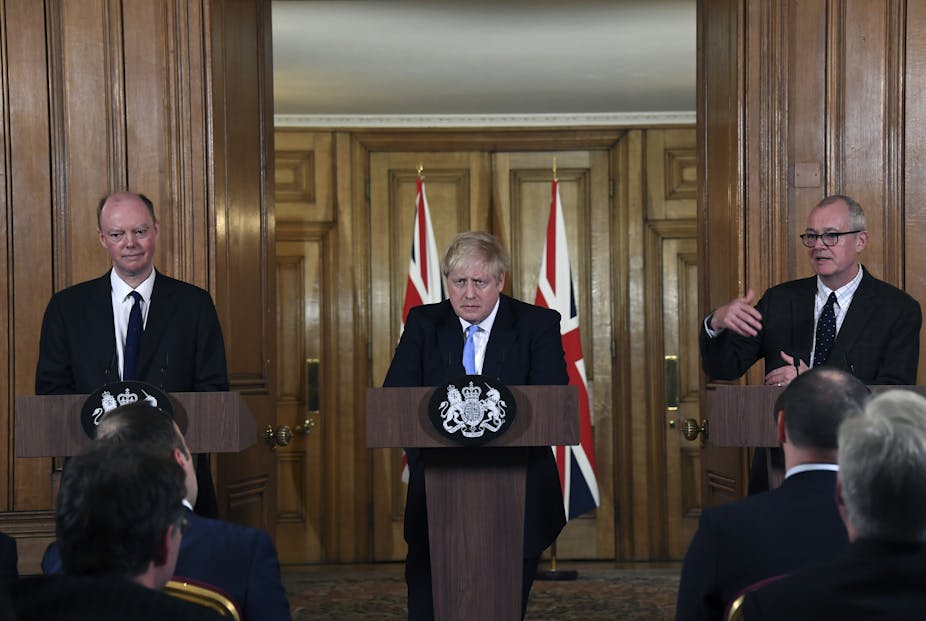Public authorities across the world are facing the acute challenge of responding to the threat of the COVID-19 virus. Currently, the responses are taking two routes. The first is to throw money at finding a vaccination. The second is to contain the virus’s spread through measures ranging from encouraging basic hygiene to locking down towns and regions and shutting public places like schools.
The problem for public authorities is that they are not in full control of either route. In autocratic countries such as China and Iran, people can be compelled to follow government diktats through fear of the consequences if they disobey. But, in democratic states, governments cannot control people in this way. Instead, they must rely on citizens being willing to heed the information and guidance offered by public officials.
But how likely are citizens to accept official information when so many of them don’t trust politicians and governments? Trust in the United States government is at a 50-year low, while in many other democratic states, more people distrust their government than trust it.
So we know that many citizens around the world already have precious little confidence in the integrity of public officials and the veracity of their words. In such a sceptical environment, official guidance often goes unheeded.
A lack of trust has already led to parents in some countries to ignore official recommendations on vaccination, leading to a worldwide rise in cases of measles. People have also been shown to resist information on issues involving an element of risk – such as genetically modified food – if they distrust government and regulatory bodies.
Choose the right messenger
People often resist official information and guidance because they think it is biased and partial. Figures provided by government ministers are often suspected as reflecting hidden agendas or interests, rather than being seen as objective.
Information provided by other, non-partisan, figures may be more readily accepted. Whereas only 26% of the British population trusts the government to be honest when presenting official statistics, this figure rises to 85% when information is provided by the independent Office for National Statistics.
This suggests that one way to overcome public resistance to official guidance is to find credible sources to present the information. Clearly, given that just 14% of British people trust politicians, they are not the obvious candidates for this role.
When it comes to deciding who might be more suited to the job, it’s worth noting that 84% of Britons profess to trust scientists and 93% to trust doctors. While politicians may need to present a public face to explain what steps are being taken – and face criticism if they are absent – people may more readily accept information and guidance if it comes from the mouths of independent scientists and medical experts.
In the UK, there is noticeable enthusiasm towards the role of the chief medical adviser, Chris Whitty, as a spokesman for the government’s response. This puts paid to the assertion made in 2016 by Cabinet Office minister, Michael Gove, that people have “had enough of experts”.
Lockdown in China
If the COVID-19 virus spreads, governments may need to move beyond public information campaigns to more radical steps including closing schools and even quarantining towns. This poses relatively few problems for authorities in autocratic states. China even managed to build new hospitals in weeks rather than years. Yet democratic governments wanting to adopt similar measures may face greater public resistance.
While there is not much solid evidence to inform our understanding of how people would react to governments assuming sweeping new powers, trust again appears to play a role. In 2013, a sample of Norwegian citizens was asked (admittedly in response to a terrorist attack rather than an infectious disease) whether they thought public authorities should be entitled to cordon off large parts of cities. While most people agreed to extend the authorities this power, consent was rather lower among people who distrusted the government (71%) than among those who trusted it (84%).

In considering their responses to COVID-19, governments need to consider how the public is likely to respond, and what role trust might play in shaping their receptiveness and compliance.
Yet we should not assume that low rates of public trust in politicians will necessarily scupper government initiatives. After all, the public authorities in Italy have managed to take the most drastic action yet among European countries, in spite of Italians having among the lowest levels of trust in their government.
If governments faced with the threat of COVID-19 do not have trust on their side, they may at least benefit from an additional weapon in encouraging the public to do what they say: fear.

